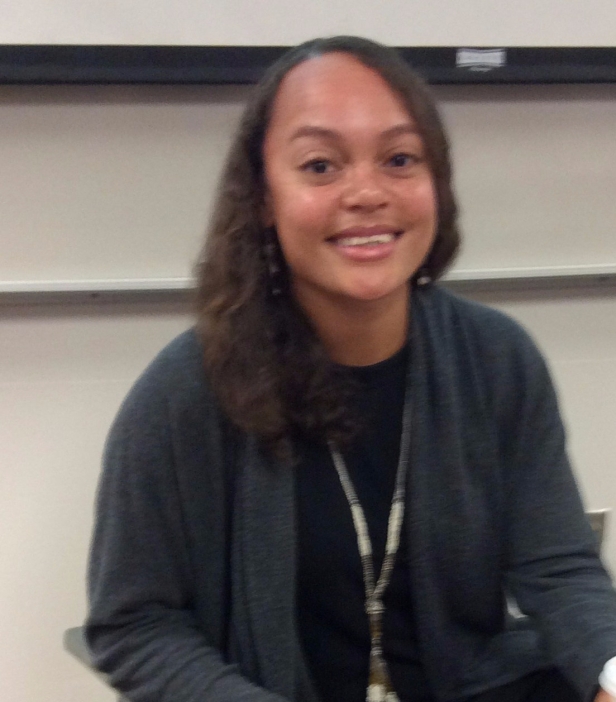
Renee Michelle Ragin may be unique among this year’s OLLI instructors. For one thing, she could pass for a teenager. For another, as a U.S. Foreign Service officer she had many run-ins with the feared religious police in Saudi Arabia. This was in spite of the fact that she spoke Arabic and wore the customary long abaya (Saudi women are expected to cover their bodies in a long black cloak when in public). During the worst confrontation, she was with a U.S. Marine who was out of uniform. Since she’s African American and he has Latin American roots, those police — and some civil police who suddenly joined them — decided both were from the Middle East and treated them accordingly. Renee argued with them for nearly an hour as crowds gathered at the restaurant complex she’d been leaving. “They were demanding that I come with them to headquarters,” she said, “but a passer-by who happened to be a Saudi diplomat finally intervened on my behalf.”
In spite of that experience, Renee said being a woman in Jeddah — Saudi’s commercial capital and arguably its most progressive city — wasn’t a problem. “Unfortunately, I think Saudi’s reputation for hostility to women — especially per U.S. cultural norms — outstrips the reality. The vast majority of my two years there were quite pleasant. Although I’m sure this had to do with my status as a representative of the U.S. government, and the rather elite circles to which I had access, I was treated quite well by everyone I worked with.” And being a woman, she said, gave her access to circles that her male peers didn’t have.
Renee explained that “Foreign Service Officers specialize in a particular field, but we wear many hats.” For a year she issued visas and helped U.S. citizens with routine and emergency problems. She spent her second year in media relations: “I wrote speeches for senior members of our Embassy community, as well as talking points and press releases. I also conducted interviews and hosted events designed to strengthen our relationships with Saudi youth.”
Prior to her assignment in Saudi Arabia, she worked in Washington, D.C. at the State Department headquarters as a “desk officer” for several African countries. This meant being the point person on every issue in a country, and connecting with her counterparts at other federal agencies and departments. “We’re the connective tissue between the Embassy in the field and the Washington agencies and departments to whom they’re responsible,” she said. She also pinch-hit for colleagues with other portfolios, and briefly supported a task force on the conflict in Libya.
Today Renee’s life is far more tranquil as a doctoral candidate at Duke, teaching (next year she’ll teach Hannah Arendt’s “The Banality of Evil”) and researching her dissertation on the impact of Lebanon’s civil war on its national identity. And this semester she’s teaching an OLLI course: “Middle Eastern Art: Is Everything Political?” Its visual vocabulary is wide-ranging: film, artistic social media, and participation on Skype with Middle Eastern artists. In class discussions Renee reveals high energy, a vivacious personality, and a great sense of humor.
She was born and raised in Manhattan. Her mother is a psychology professor and her father, now retired, worked in finance and philanthropy, but he’s a serious history buff. A cousin was a United Nations diplomat in Vienna. Renee attended demanding New York schools: the United Nations International School and the Bronx High School of Science. She went on to Harvard, where she studied post-colonial Latin American and Caribbean history and literature of the post-colonial era. Her senior thesis was on the role of Haitian- and Dominican-American literature on a 30-year dictatorship in the Dominican Republic. “I also dabbled in contemporary Middle Eastern literature,” she said. She was unusual in going straight from Harvard to the State Department and was the youngest Foreign Service Officer in her entering class of 100. “I’d planned to stay in the Foreign Service: I was promoted to mid-rank,” she said, “but now I’m thinking of an academic career.” A visit to Duke “felt right,” and the faculty impressed her as supportive. On top of this, she said, “I like North Carolina!”
Barbara Haddad Ryan
